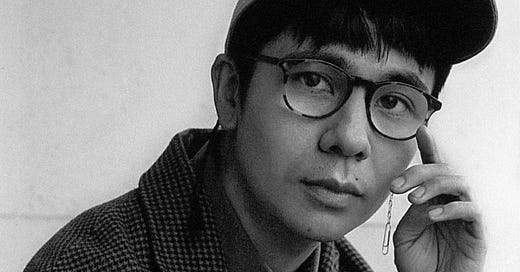Ocean Vuong and the Tenderness of Impermanence
A Buddhist reading of “Someday I’ll Love Ocean Vuong”
In a world increasingly defined by noise and fracture, the poetry of Ocean Vuong offers something rare: a soft-spoken voice that refuses to look away. Born in Saigon and raised in the U.S. as a refugee, Vuong writes from the wounds of history and the aching beauty of being human. His work doesn’t preach Buddhism, but it often feels like it was whispered in a zendo—quietly fierce, radically aware, and painfully tender.
The Poem
From Night Sky With Exit Wounds (2016):
Someday I’ll Love Ocean Vuong
The most beautiful part
of your body
is where it’s headed.& remember,
loneliness is still time spent
with the world.
This is a poem written in the form of a letter to himself. It’s self-compassionate, unflinching, and steeped in awareness of change. The speaker talks to a past or future self, encouraging acceptance—not just of joy or love, but of aloneness, of impermanence, of becoming.
Why It Resonates with Buddhism
1. Impermanence and Becoming
“The most beautiful part / of your body / is where it’s headed.”
This line echoes the Buddhist understanding that all things are in flux—anicca. But here, impermanence isn’t terrifying; it’s a kind of grace. The future, even when unknown, is a place of unfolding. We’re not static selves—we are flowing streams.
2. Loneliness as Connection
“Loneliness is still time spent with the world.”
Vuong redefines loneliness as not a lack but a form of communion. In meditation, solitude is not separation—it’s intimacy. This line invites us to reframe our sadness or emptiness not as failure but as presence. It is a mindfulness that includes our pain.
3. Compassion for the Self
Much like loving-kindness (mettā) practice, this poem speaks inward with care. Telling oneself, “Someday I’ll love you”, isn’t an escape from suffering but an embrace of it. Vuong writes like a bodhisattva comforting his own wounded self—because the world needs healing voices that begin within.
About Ocean Vuong
Born in Vietnam in 1988, Ocean Vuong immigrated to the U.S. at age two.
His debut poetry collection Night Sky With Exit Wounds won multiple awards.
His novel On Earth We’re Briefly Gorgeous further explores trauma, queerness, war, and language.
Vuong has spoken openly about meditation, silence, and learning from his mother’s Buddhist roots.
“I think being a poet is not that different from being a monk,” he said in one interview.
“You're sitting with the silence. You're listening.”
Buddhist Readers and Vuong’s Work
Reading Vuong through a Buddhist lens doesn’t limit his work—it deepens it. His poems speak directly to the raw places Buddhism also seeks to touch: where the self dissolves, where love and grief collapse into one gesture, where every breath is both joy and goodbye.
Ocean Vuong doesn’t write about nirvana or reincarnation. He writes about burning houses and quiet rooms, about queer bodies and refugee trauma. But beneath every image is the Dharma: that everything changes, that beauty arises from suffering, that the present moment is all we have—and it’s enough.
“& remember,
loneliness is still time spent
with the world.”





